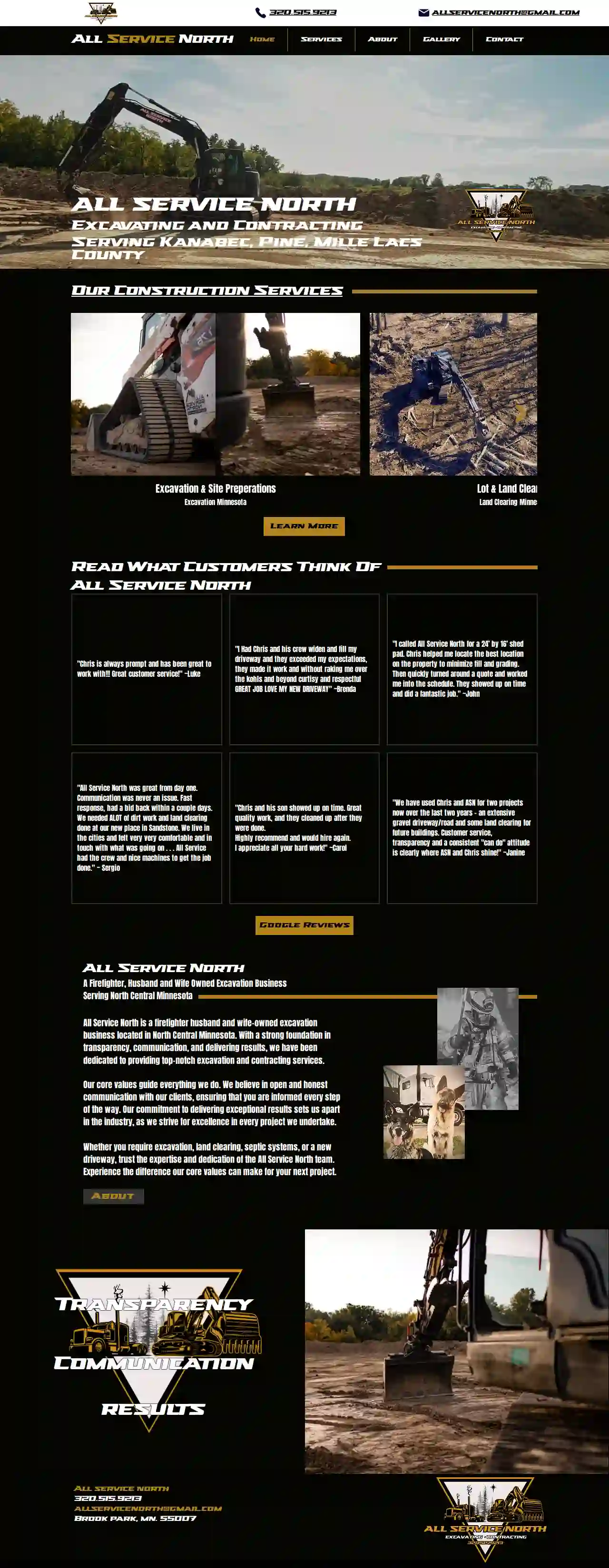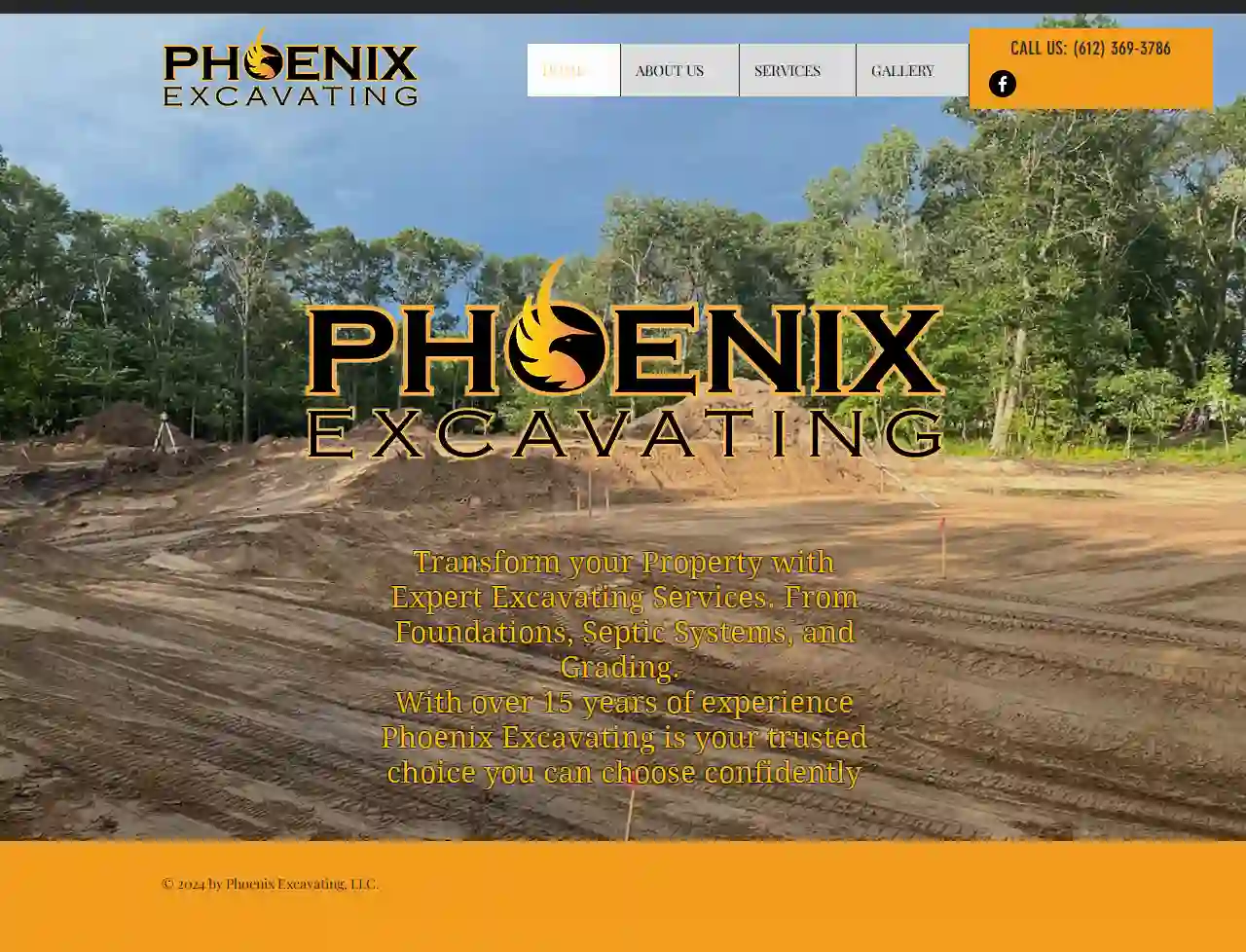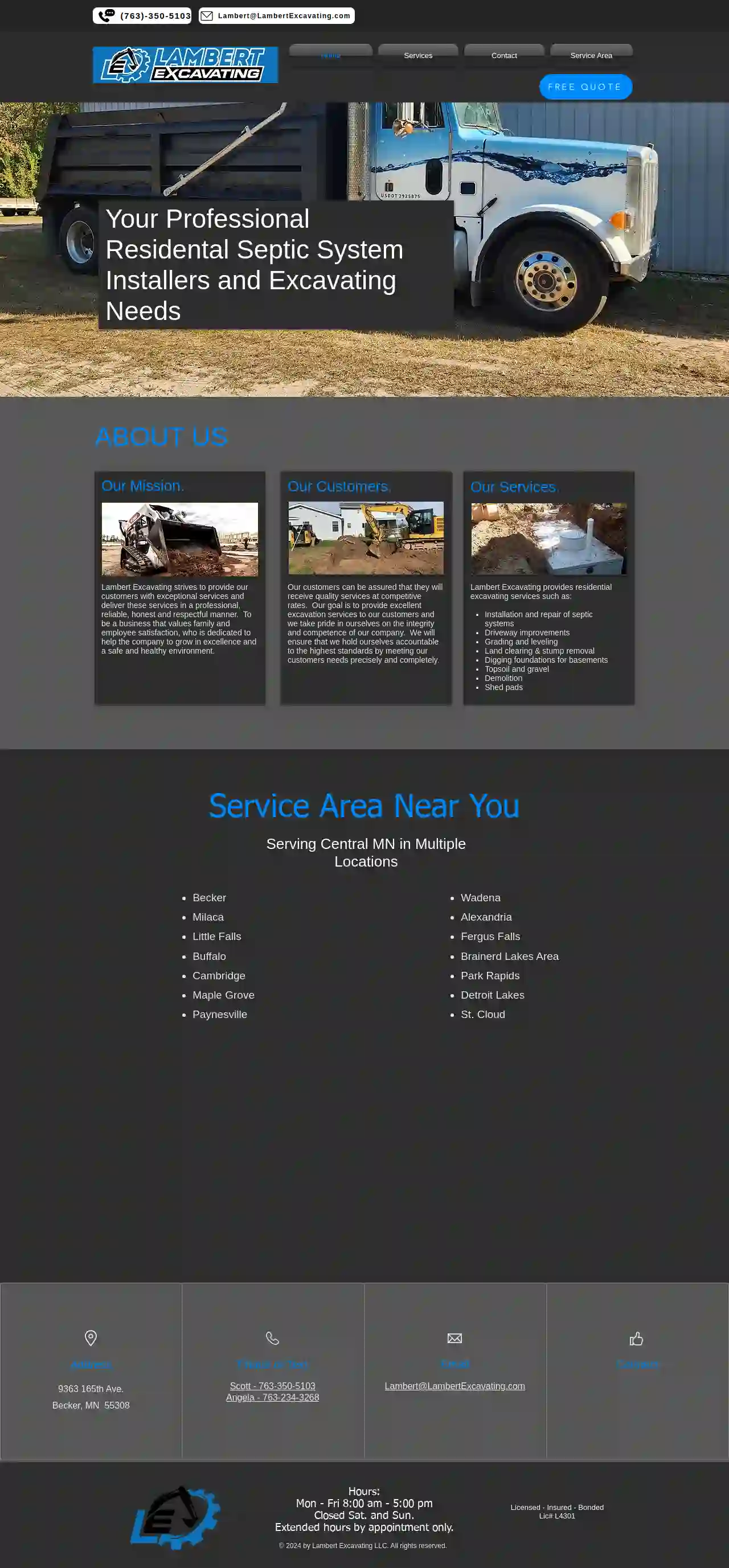Dirt Contractors Minneapolis
Find top Dirt Hauling in Minneapolis
Receive up to 3 Dirt Removal quotes for your project today! Compare profiles, reviews, accreditations, portfolio, etc... and choose the best deal.

All Service North - Excavating, Grading and Septic
542 reviewsBrook Park, 55007, USAll Service North A Firefighter, Husband and Wife Owned Excavation Business Serving North Central Minnesota All Service North is a firefighter husband and wife-owned excavation business located in North Central Minnesota. With a strong foundation in transparency, communication, and delivering results, we have been dedicated to providing top-notch excavation and contracting services. Our core values guide everything we do. We believe in open and honest communication with our clients, ensuring that you are informed every step of the way. Our commitment to delivering exceptional results sets us apart in the industry, as we strive for excellence in every project we undertake. Whether you require excavation, land clearing, septic systems, or a new driveway, trust the expertise and dedication of the All Service North team. Experience the difference our core values can make for your next project.
- Services
- Why Us?
- Testimonials
- Gallery
Get Quote
Phoenix Excavating
51 reviewsMinneapolis, USTransform your Property with Expert Excavating Services. From Foundations, Septic Systems, and Grading. With over 15 years of experience Phoenix Excavating is your trusted choice you can choose confidently.
- Services
- Why Us?
- Gallery
Get Quote- No
NorthLand Dirt
1Minneapolis, US- Services
- Why Us?
- Gallery
Get Quote 
His Workmanship - Minneapolis
4.6179 reviewsMinneapolis, US- Services
- Why Us?
Get Quote
Lambert Excavating LLC
51 reviewsMinneapolis, US- Services
- Why Us?
Get Quote
Over 3,943+ Excavation Businesses on our platform
Our excavation providers operate in Minneapolis & beyond!
ExcavationHQ has curated and vetted Top Excavation Contractors in Minneapolis. Find a top & trustworthy business today.
Frequently Asked Questions About Dirt Contractors
- Efficiently Spread and Level Dirt: Using specialized equipment like bobcats or skid steers to ensure even distribution and proper compaction.
- Achieve Precise Grading: Following specific grades and contours for drainage or construction purposes.
- Handle Large Volumes of Dirt: Managing large deliveries and removals with dump trucks and other heavy machinery.
- Minimize Risks and Ensure Safety: Working safely and efficiently, reducing the potential for injuries or property damage.
- Increases Soil Stability: Compacted soil is less likely to shift, settle, or erode, providing a stable foundation for structures, walkways, or driveways.
- Improves Drainage: Compaction can enhance drainage by reducing the soil's porosity and allowing water to flow more efficiently.
- Reduces Settlement: Proper compaction minimizes future settling, preventing uneven surfaces or structural damage.
- Enhances Load-Bearing Capacity: Compacted soil can support heavier loads without excessive compression or deformation.
Can I spread dirt myself, or should I hire a professional?
What is the difference between topsoil and fill dirt?
Topsoil: The uppermost layer of soil, characterized by its rich organic matter content, nutrients, and dark color. It's essential for supporting plant growth and is commonly used for gardening, landscaping, and lawn establishment.
Fill Dirt: Primarily composed of subsoil or excavated materials, generally lacking the organic matter and nutrients found in topsoil. It's typically less fertile and used for structural purposes, such as filling in low areas, leveling ground, or creating raised beds.
Understanding the difference between topsoil and fill dirt is crucial for choosing the appropriate soil type for your specific project needs.
What is dirt compaction, and why is it important?
What is the difference between screened topsoil and unscreened topsoil?
Screened Topsoil: Processed through a screening machine to remove large debris, rocks, and clumps, resulting in a finer and more uniform texture. It's generally considered higher quality and is preferred for landscaping, gardening, and lawn establishment.
Unscreened Topsoil: Not processed through a screening machine and may contain various sizes of debris, rocks, and clumps. It's typically less expensive than screened topsoil but may require additional work to remove debris before use.
Choosing between screened and unscreened topsoil depends on your project's specific needs and budget.
Can I spread dirt myself, or should I hire a professional?
- Efficiently Spread and Level Dirt: Using specialized equipment like bobcats or skid steers to ensure even distribution and proper compaction.
- Achieve Precise Grading: Following specific grades and contours for drainage or construction purposes.
- Handle Large Volumes of Dirt: Managing large deliveries and removals with dump trucks and other heavy machinery.
- Minimize Risks and Ensure Safety: Working safely and efficiently, reducing the potential for injuries or property damage.
What is the difference between topsoil and fill dirt?
Topsoil: The uppermost layer of soil, characterized by its rich organic matter content, nutrients, and dark color. It's essential for supporting plant growth and is commonly used for gardening, landscaping, and lawn establishment.
Fill Dirt: Primarily composed of subsoil or excavated materials, generally lacking the organic matter and nutrients found in topsoil. It's typically less fertile and used for structural purposes, such as filling in low areas, leveling ground, or creating raised beds.
Understanding the difference between topsoil and fill dirt is crucial for choosing the appropriate soil type for your specific project needs.
What is dirt compaction, and why is it important?
- Increases Soil Stability: Compacted soil is less likely to shift, settle, or erode, providing a stable foundation for structures, walkways, or driveways.
- Improves Drainage: Compaction can enhance drainage by reducing the soil's porosity and allowing water to flow more efficiently.
- Reduces Settlement: Proper compaction minimizes future settling, preventing uneven surfaces or structural damage.
- Enhances Load-Bearing Capacity: Compacted soil can support heavier loads without excessive compression or deformation.
What is the difference between screened topsoil and unscreened topsoil?
Screened Topsoil: Processed through a screening machine to remove large debris, rocks, and clumps, resulting in a finer and more uniform texture. It's generally considered higher quality and is preferred for landscaping, gardening, and lawn establishment.
Unscreened Topsoil: Not processed through a screening machine and may contain various sizes of debris, rocks, and clumps. It's typically less expensive than screened topsoil but may require additional work to remove debris before use.
Choosing between screened and unscreened topsoil depends on your project's specific needs and budget.